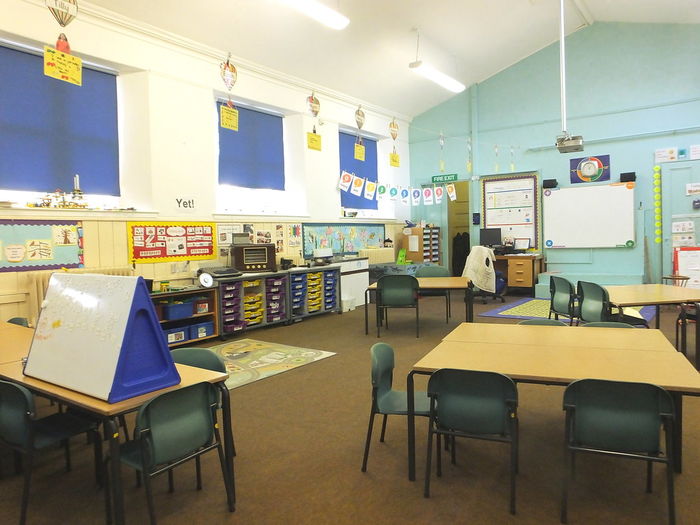Study recommends ‘polymath’ approach to British education
The study makes the case for an overhaul of the British curriculum to encourage integrated understanding of school subjects

A new study produced by education researchers suggests that British pupils would benefit from a ’transdisciplinary’ approach to their education.
The researchers advocate a thematic approach to teaching, combining teaching and comprehension of the arts and sciences rather than treating them as separate subjects.
The research was carried out by Professor Pam Burnard, Dr Laura Colucci-Gray, and Dr Pallawi Sinha from the University of Cambridge, University of Edinburgh, and the University of Suffolk respectively.
The results of the study were published in an article in ‘Curriculum Perspectives’, an Australian journal on ‘curriculum scholarship’. The study looked at a ‘mathartwork’ by South African artist Jubalani and a garden project in a primary school in Aberdeen.
The study was intended to look into the benefits and potential iterations of a ‘STEAM education’ which incorporates ‘arts’ into the more common grouping of ‘STEM’ subjects: Science, Technology, Engineering, and Mathematics.
In their article, the researchers state: “Central to understanding the pedagogic intricacies and educational opportunities offered by STEAM is the interrogation of the role and status of the arts in relation to STEM subjects, and the need for curriculum reform.”
The article sets out several concepts which influenced the researchers’ approach to the study and in particular their conceptualization of knowledge and learning. Their vision for transdisciplinary teaching was influenced by ‘rhizomatic inquiry’, a concept taken from the ‘unruly’ structure of a rhizome or tuber, as well as the idea of diffractive analysis which may offer an alternative approach to traditional subject-specific teaching.
Regarding the potential changes to education which the approach would necessitate, Pam Burnard, co-author of the study and Professor of Arts, Creativities and Education at the University of Cambridge, said: “It would require a system of testing which measures how children are internalising ideas and what they are expressing – not just what they know.”
“That may be an uncomfortable idea for some, but it is the sort of radical thinking we need if education is going to prepare young people for the future.”
Authors also cited the interdisciplinary pursuits of artist, architect, engineer, and scientist Leonardo daVinci, often hailed as a polymath and exemplar of the Renaissance man.
“If we look at the amazing designs that da Vinci produced, it’s clear he was combining different disciplines to advance knowledge and solve problems” said Burnard.
The artwork used in the study, titled ‘Stressed Vitruvian Man’ recalled da Vinci’s iconic ‘Vitruvian Man’ drawing. Researchers looked at the ‘mathartwork’ piece both as a visual depiction of the interaction and tension between arts and sciences, as well as its creation, as emblematic of the kind of interdisciplinary teaching they are advocating.
“We need to encourage children to think in a similar way because tomorrow’s adults will have to problem-solve differently due to the existential crises they will face,” said Burnard, “especially those of climate, sustainability, and the precarity of life on Earth.”
The researchers emphasise the importance of addressing these global challenges in the context of the climate crisis and the Covid-19 pandemic. In their article, the authors characterise the world as “fractured”, stating “there is a pressing need to develop alternative ways of knowing and being.”
Looking into the ‘STEAM garden’ project in Aberdeen, the researchers found that the children’s modes of thinking were broadened- tending to the garden as well as using the pre-existing playground structures- and they developed “living knowledge” of the physical, natural landscape. The project, situated in a school in an area of socio-economic deprivation, involved growing food in the school playground.
“The nature of these problems calls for a radically different approach to knowledge” said Dr Laura Colucci-Gray, one of the study’s researchers at the University of Edinburgh. “We are proposing a move from the idea of a curriculum as something children are just ‘given’ to a curriculum ‘in-the-making’, in response to transformations that will define their lives.”
 News / Caius mourns its tree-mendous loss23 December 2025
News / Caius mourns its tree-mendous loss23 December 2025 News / Clare Hall spent over £500k opposing busway 24 December 2025
News / Clare Hall spent over £500k opposing busway 24 December 2025 Comment / The ‘class’ of Cambridge24 December 2025
Comment / The ‘class’ of Cambridge24 December 2025 Comment / Yes, I’m brown – but I have more important things to say22 December 2025
Comment / Yes, I’m brown – but I have more important things to say22 December 2025 Interviews / Politics, your own way: Tilly Middlehurst on speaking out21 December 2025
Interviews / Politics, your own way: Tilly Middlehurst on speaking out21 December 2025








